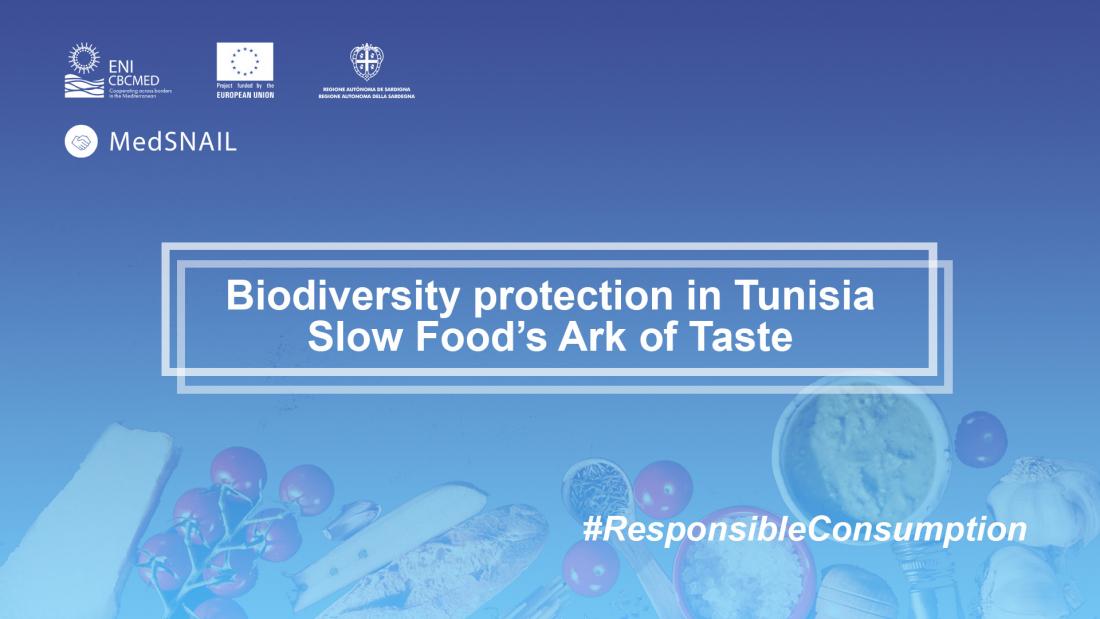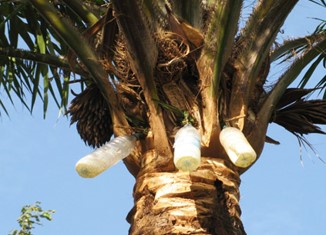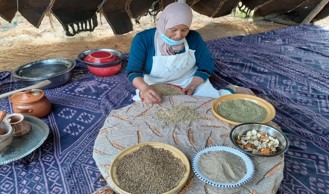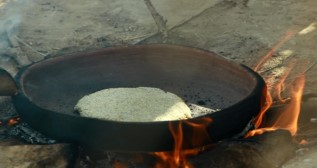MedSNAIL in Tunisia: Biodiversity protection in Tunisia through the Slow Food’s Ark of Taste program

"Every time you eat a plate of couscous in Tunisia, only a quarter is produced locally; three-quarters of the dish is imported. This means seeing dependence on our plate while knowing Tunisia to be a country capable of feeding its people."
Speaking is researcher and filmmaker Habib Ayeb interviewed by COSPE for "Lands of Food." [SOURCE Greenreport]
An analysis that compares the contradictions of a country of strong agricultural traditions and great resources and a new economic model that has great reflections on food production and society in general. In fact, food sovereignty and global agricultural biodiversity itself is at great risk both from the dynamics of the globalized market, massive migration flows from the country, and finally from internal policies themselves.
In such a context, the work of the partners of the MedSNAIL project has been placed, fostering the valorization and development of small-scale traditional agro-food value chains, combining enhancement of market potentialities and socio-environmental sustainability. Project activities were built on the well-established experience, principles and methods of Slow Food, an international grassroots organization promoting traditional food with a strong focus on biodiversity preservation.
And in particular, Slow Food's Ark of Taste project fits in well to safeguard food biodiversity put at risk by the difficult situation.
Fortunately, Slow Food's project has been enthusiastically received by the local network, and the Ark already has numerous products on board. Thanks to the work of the MedSNAIL project, another 7 products have been identified and selected, such as Kerkennah palm trees/Ghaba, Rob – date syrup, Legmi, Zammit Makhdhour or Jardkaa – Sfax barely bread.
All have interesting histories and traditions.
For instance, Legmi, an Indigenous syrupy and whitish sap of the date palm. It is a traditional drink from southern Tunisia, and more exactly from the regions of Kerkennah, Gabès, Tozeur and Douz. It is consumed especially during the Ramadan and served during the meals of Al-Iftar (breaking the fast) and Shour (before elfajr).

In Tunisia, and especially in Kerkennah, the harvest is made based on indigenous know-how inherited from generation to another. Their main concern is the preservation of the date palm tree for a sustainable harvest but also to sustain their income. The extraction of the legmi is done in a very precise way. Only the Mâalem (master) knows the method, learned from father to son and from generation to generation for a long time. In a first step, the mâalem climbs along the palm tree, then cuts part of its top, to unearth its core known as "jumar": a sap having an oval shape. A palm tree produces a daily volume of sap of 5-6 liters, an operation that requires 3 months to exhaust the source. The tree is then left to regrow for a period of 4 years.
A curiosity: consuming fermented legmi is forbidden by Islamic precepts, and for this reason its production is often carried out in a semi-clandestine manner. The legmi legally sold is fresh and not alcoholic.
Another interesting product is the Zammit makhdhour, made with barley seeds flour and very popular during the month of Ramadan, where its richness in calories and vitamins allow its consumers to better endure fasting during the day. In ancient times, traces of Zammit can be found in Roman era. El Wazen, reports in his description of "Ifriquia" ( افريقية ; current Tunisia), that the Berbers used to eat during the day a meal of barley mixed with olive oil (to have a paste) or with water, and this liquid was called "Zammit or dardoura". Today, farmers generally keep it for their self-sufficiency, selling a small quantity on demand to people in Sfax.

Or, finally, Jardkaa, a unleavened bread made with barley flour, popular in Sfax city because of the importance of barley culture in the region. The farmers keep it for their self-sufficiency. They sell a small quantity on demand to people in Sfax.

Traditional biodiversity hides so many stories as well as profound richness. It is crucial to save it, but there is still a long way to go. So, we have set ourselves an ambitious goal: to board thousands of products on the Ark, tracking them down in every corner of the planet.
The Slow Food’s Ark of Taste travels the world collecting small-scale quality productions that belong to the cultures, history and traditions of the entire planet, pointing out their existence, drawing attention to the risk of their extinction within a few generations and inviting everyone to take action to help protect them. Take action and discover and nominate the next Ark of Taste product!
To find out more about the Tunisian Ark of Taste click here
To nominate a product click here
To find more about the Ark of Taste products thanks to the MedSNAIL project click here









